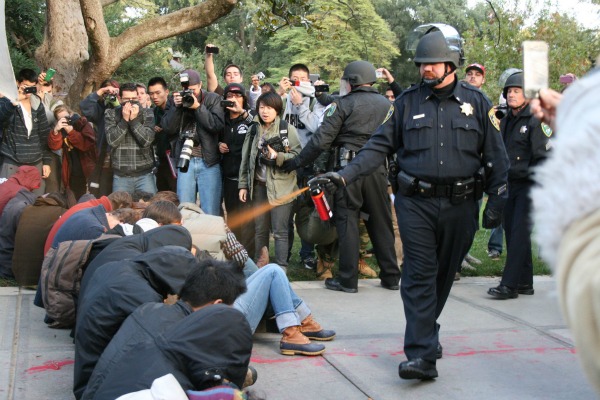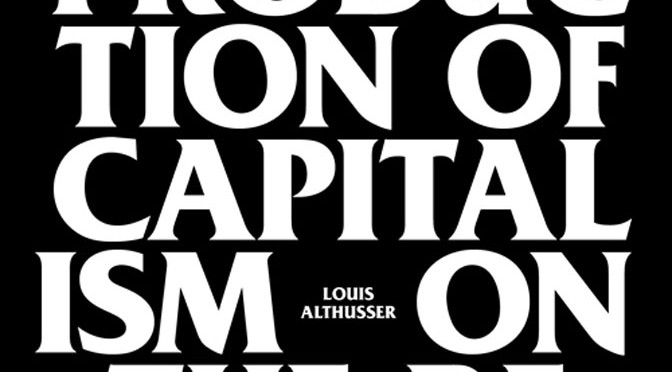Althusser’s contribution to Marxist theory rests heavily here: there is a difference between the state and its apparatuses as we just described and “ideological state apparatuses.” The state and its apparatuses are part of the Marxist “repressive state apparatus” – the government as we conventionally understand it, ideological state apparatuses are something vastly different. The repressive state apparatus, as we’ve noted before, is always there to mace you in the face when push comes to shove.

Ideological state apparatuses work in a different way. They’re there to convince you that you’re going to hell unless you follow the rules, or you’ll never get a job if you get a worthless degree in, say, critical theory and die of exposure in the streets while clinging to your heavily annotated copy of Nietzsche’s “The Antichrist.” There are a variety of different kinds of ideological state apparatuses that all work together to reproduce capitalism.
Althusser gives a handy list of examples:
- the Scholastic Apparatus
- the Familial Apparatus
- the Religious Apparatus
- the Political Apparatus
- the Associative Apparatus
- the Information and News Apparatus
- the Publishing and Distribution Apparatus
- the Cultural Apparatus
Althusser says that many of these apparatuses are “anchored” in something non-ideological. The family, for instance, exists independently from capitalism as a means of reproduction and child-rearing. But the specifics of today’s family: turning your little abomination into a respectable, rule-abiding citizen who can contribute meaningfully to society, are dictated by capitalism. And of course, the family also functions as a unit for consumption and in rural farming areas as a unit capable of production.
Capitalists also need to make sure their workers know how to read and write, do basic math, and so on. So we have school. But as Althusser notes, school is not just about learning technical matters like math. It is also, to quote the words of that Hot Topic kid, an instrument to teach us to be “sheeple.” In Althusser’s terms, school functions to subject people to the dominant ideology.
Althusser is careful in defining ideological state apparatuses as complex systems containing several institutions and organizations. While we may call the media an ideological state apparatus, Fox News alone is not.
Whereas the repressive state apparatus is grounded in repression first, and ideology second, ideological state apparatuses operate on ideology first and repression second. Althusser here uses a clever metaphor found in French recruitment posters, “Join the army and learn a trade!” Or, for the American audience: “Let’s go pillage Vietnam, I hear it’s beautiful there. ”
Ideological state apparatuses work on an inverse logic. In the case of technical schools, you are there above all to learn a trade. Punishment and expulsion from schools, the repressive part, are a secondary concern, unlike in the example of the army.
This vast network of ideological state apparatuses work within their own logic, but as a whole serve to reproduce capitalism. Each is different in its function than the next, albeit often similar. The indoctrination that happens in the school is distinct from the indoctrination from the family, the media or popular culture. But they all work together to reproduce the means of production.
There can be contradictions within ideological state apparatuses, however. In the same way the Pope can decry the evils of capitalism or Slavoj Zizek can get 8,000 book deals, other ideological apparatuses are victim to the very origin they are “grounded” in. It’s for this reason that Althusser says ideological state apparatuses are “fragile.” Despite this fragility, he notes, they are “extraordinary strong.”
In the case of a revolution, it’s never enough to simply dismantle the repressive apparatuses – the police, army, etc. The ideological apparatuses must also be replaced, and this is a pressing problem. How are we to create schools, media outlets and culture which no longer reify bourgeois culture and ultimately, capitalism itself? If these capitalist ideological apparatuses are not uprooted, Althusser argues, they risk corrupting the socialist revolution.
Click below to continue reading


